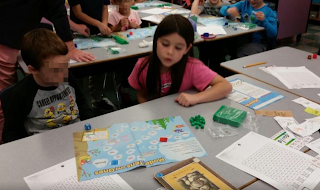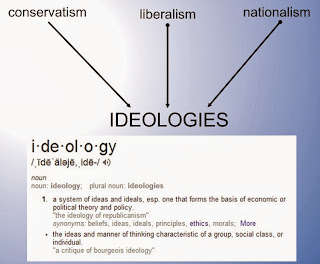The 4 Stakeholders of Education Technology
I'm an educator in many ways: I'm a learner, a teacher, a parent, and a leader. Each role makes me better informed and better qualified to fulfill the other roles. I value all four of these vantage points, and here's why.
My young children, ages 8 and 5, want to be just like their parents. They see us video chatting with our friends and family, emailing for work, writing and designing original creations, streaming and downloading music and videos that matter to us, and more. To me, this means it is important to introduce them both to online gaming, Google Drive creation and storage, YouTube, and even Snapchat. While they do not yet have accounts on ALL of those platforms, they do have accounts on some. Those accounts are private, monitored and controlled by their parents, and exist so that their digital learning is just another part of their early learning about socialization, communication, and service. When they are ready, my children will decide when and if they want to share what they've learned and created with the broader internet.
Just as I'm teaching my children, their teachers are teaching me. Often, I get updates via email or a home-school communication app or website with photos of my daughters reading, learning, and even dancing and singing during their school day. These updates sometimes include photos, which I love to share with my children in the evening as a conversation starter about their day, and sometimes include links to valuable online learning resources that we can use to supplement what is happening at school. I've been able to learn with and from my children thanks to these resources.
In the end, no matter the role you fulfill in education technology, you should feel like you can experiment, make mistakes, and share your findings too. This certainly does not mean that we should not take responsibility for doing prior due diligence when it comes to student data privacy and essential security measures. But it does mean that when we have put reasonable safeguards in place, we need to be able to take chances for the sake of advancing student learning and engagement. We should ask ourselves, "What does technology make possible?"
1. Learner
Over the past few months, I have developed skills in privacy policy vetting and app deployment for the teachers and students at my school. I've also started to develop a library of openly licensed education resources in content areas and grade levels where I have never taught as a classroom educator. These skills and resources only came with significant research, collegial support, and practice. And these are only my most recent learnings. One of the best parts of my role as an education technologist is that I know the field will continue to develop and change. I'm still learning and exploring the potential of virtual reality thanks to offerings from a few companies my school works with and the free apps available on iOS. I will always be a learner. I will always be challenged.2. Teacher
In the classroom with students, I provide insights as they research and design projects. What are the most reliable websites? Who are the experts the can contact for insights and interviews? How can you best evaluate, compare, and analyze the information you've gathered? What is the best medium to share your findings? Should you use an infographic, public service announcement, podcast, essay, animation, coded simulation? Once you've decide the right medium, which tools will help you create the highest quality product and learn new skills? When you decide to share what you've learned, what is are your responsibilities as a digital citizen when you publish online?3. Parent
 |
| My 2nd grader's teacher sent me this photo of her using manipulatives to solve math problems with a classmate in the fall. |
Just as I'm teaching my children, their teachers are teaching me. Often, I get updates via email or a home-school communication app or website with photos of my daughters reading, learning, and even dancing and singing during their school day. These updates sometimes include photos, which I love to share with my children in the evening as a conversation starter about their day, and sometimes include links to valuable online learning resources that we can use to supplement what is happening at school. I've been able to learn with and from my children thanks to these resources.
4. Leader
As a blogger, speaker, digital learning specialist, and director of education I often find myself working with colleagues to lead the charge when it comes to policy changes, pilot programs, and professional learning in education technology. This role gives me opportunities to experiment, make mistakes, and share my findings with others.In the end, no matter the role you fulfill in education technology, you should feel like you can experiment, make mistakes, and share your findings too. This certainly does not mean that we should not take responsibility for doing prior due diligence when it comes to student data privacy and essential security measures. But it does mean that when we have put reasonable safeguards in place, we need to be able to take chances for the sake of advancing student learning and engagement. We should ask ourselves, "What does technology make possible?"


.jpg)
Hey! Forget the stress of submitting a substandard essay when experts from custom term paper writing service are ready to tackle your assignment with professionalism. Formatting, referencing, quotations, research citations, scholarly examples all are accommodated according to your requirements.
ReplyDelete